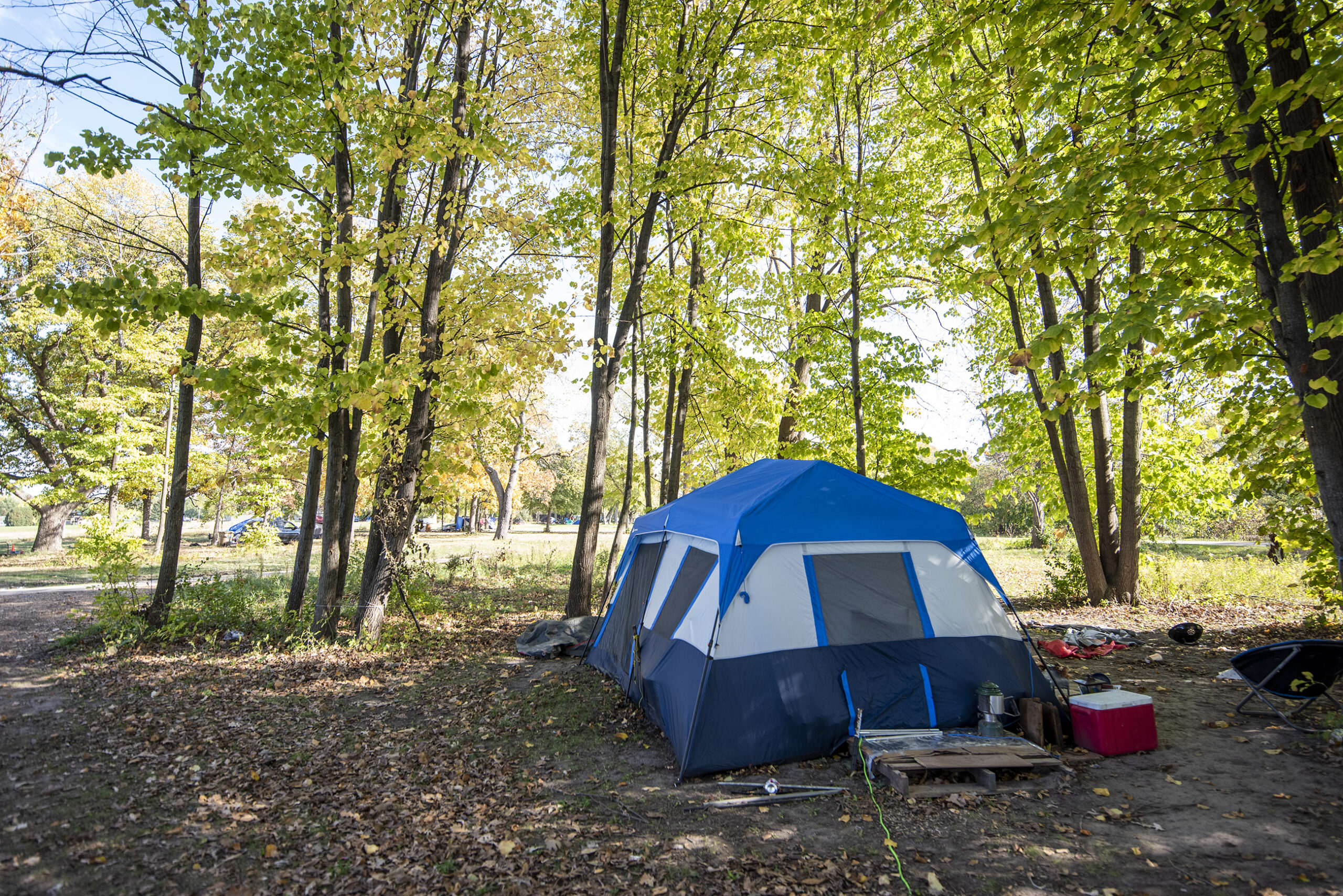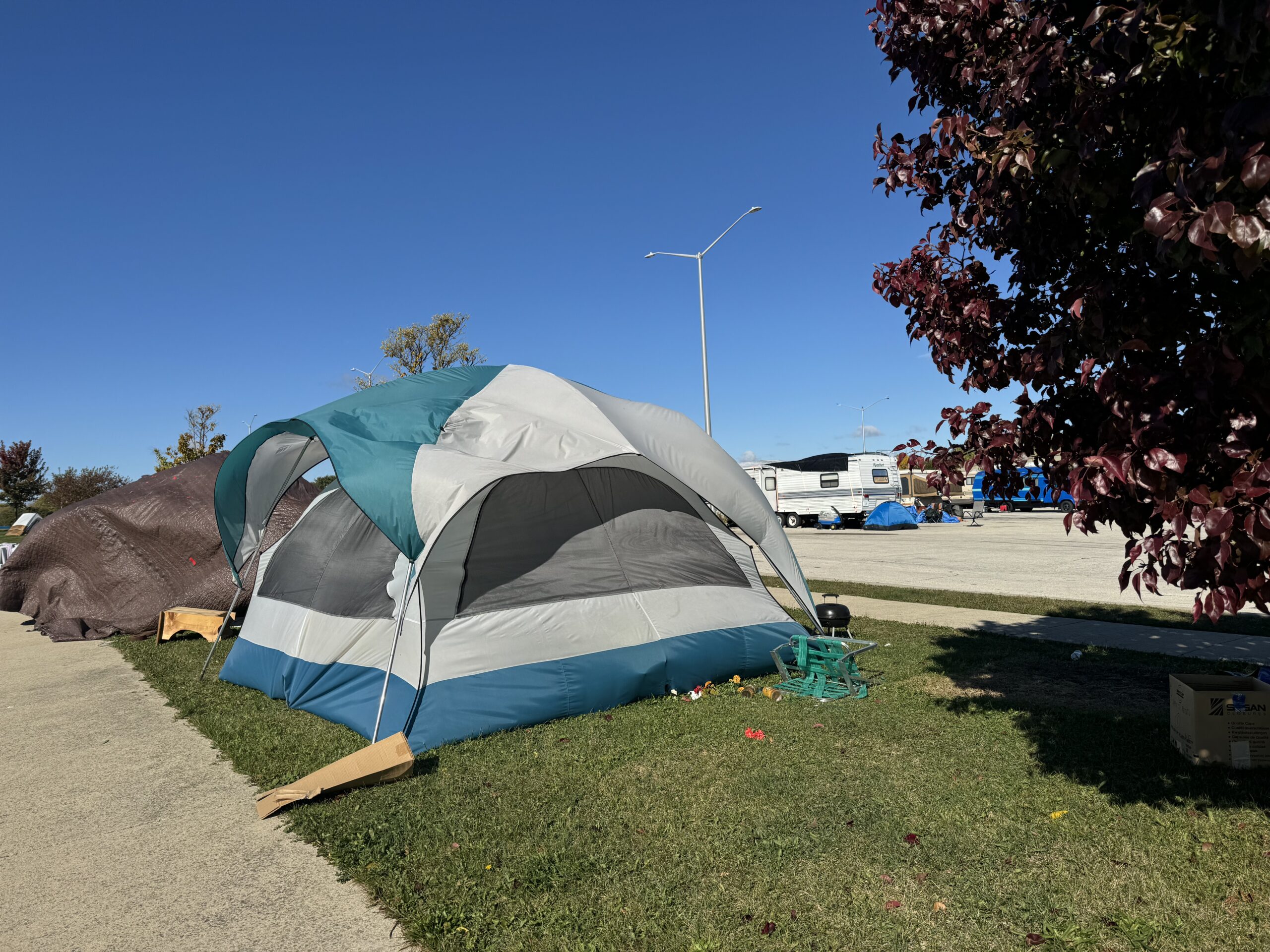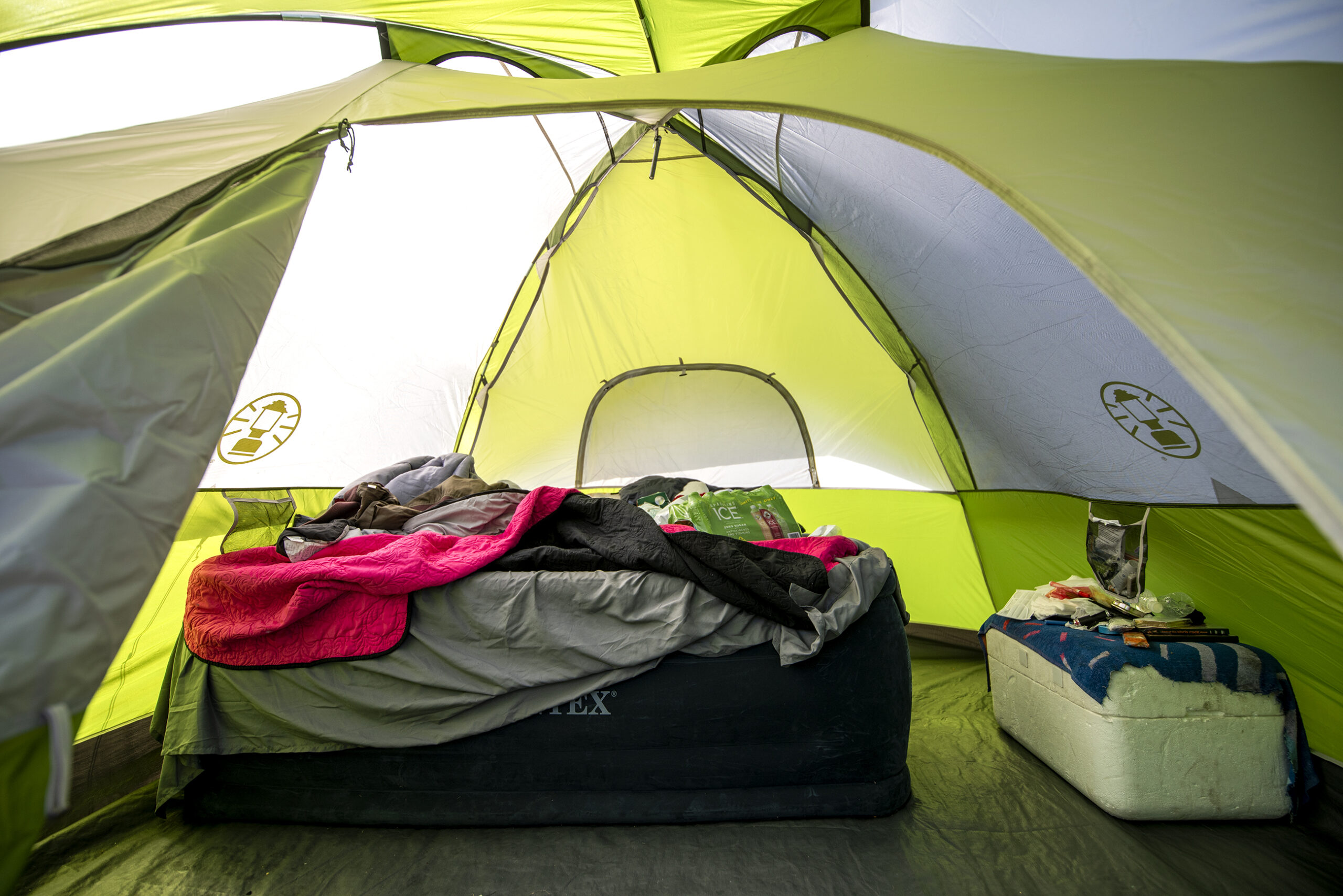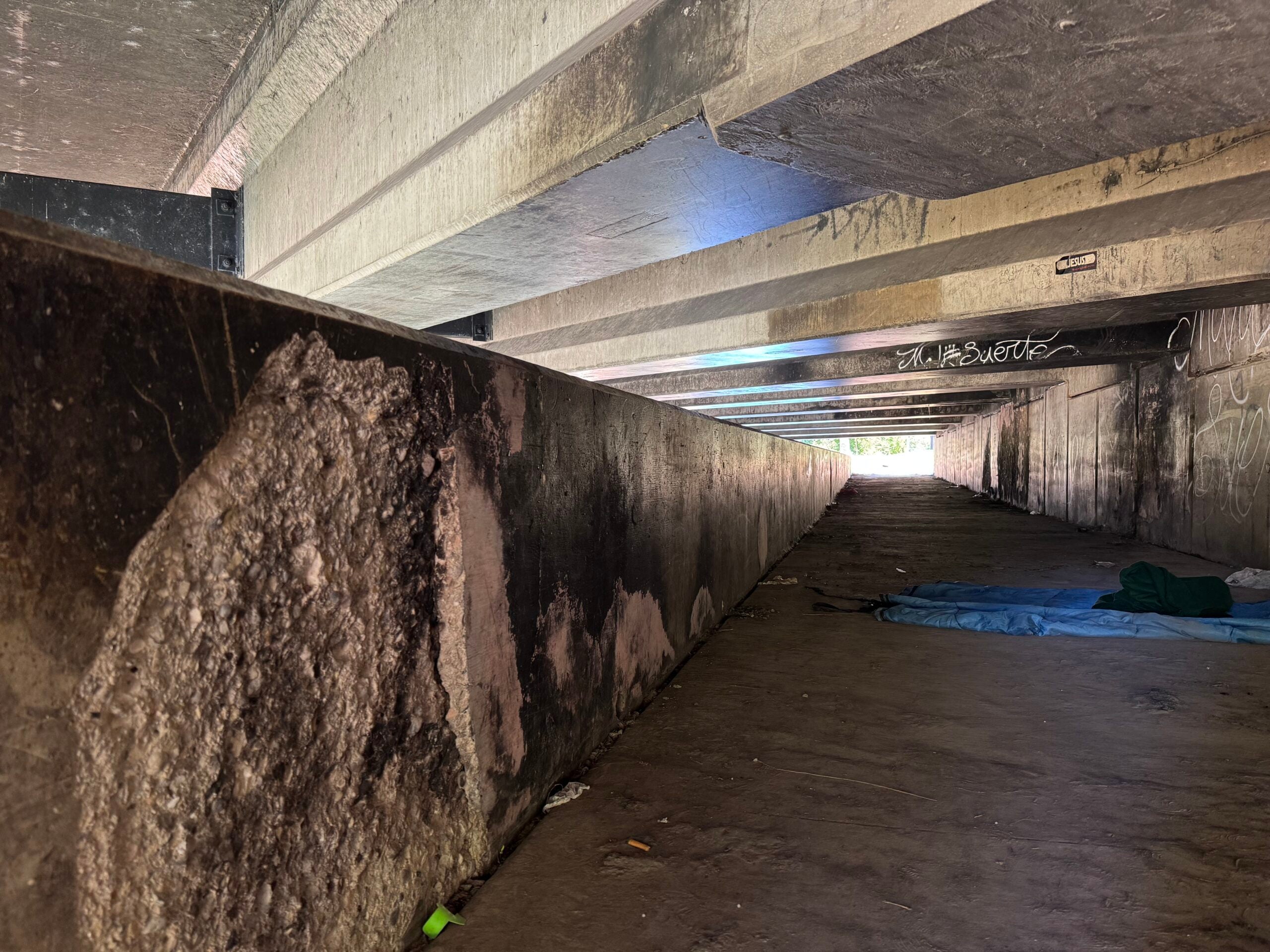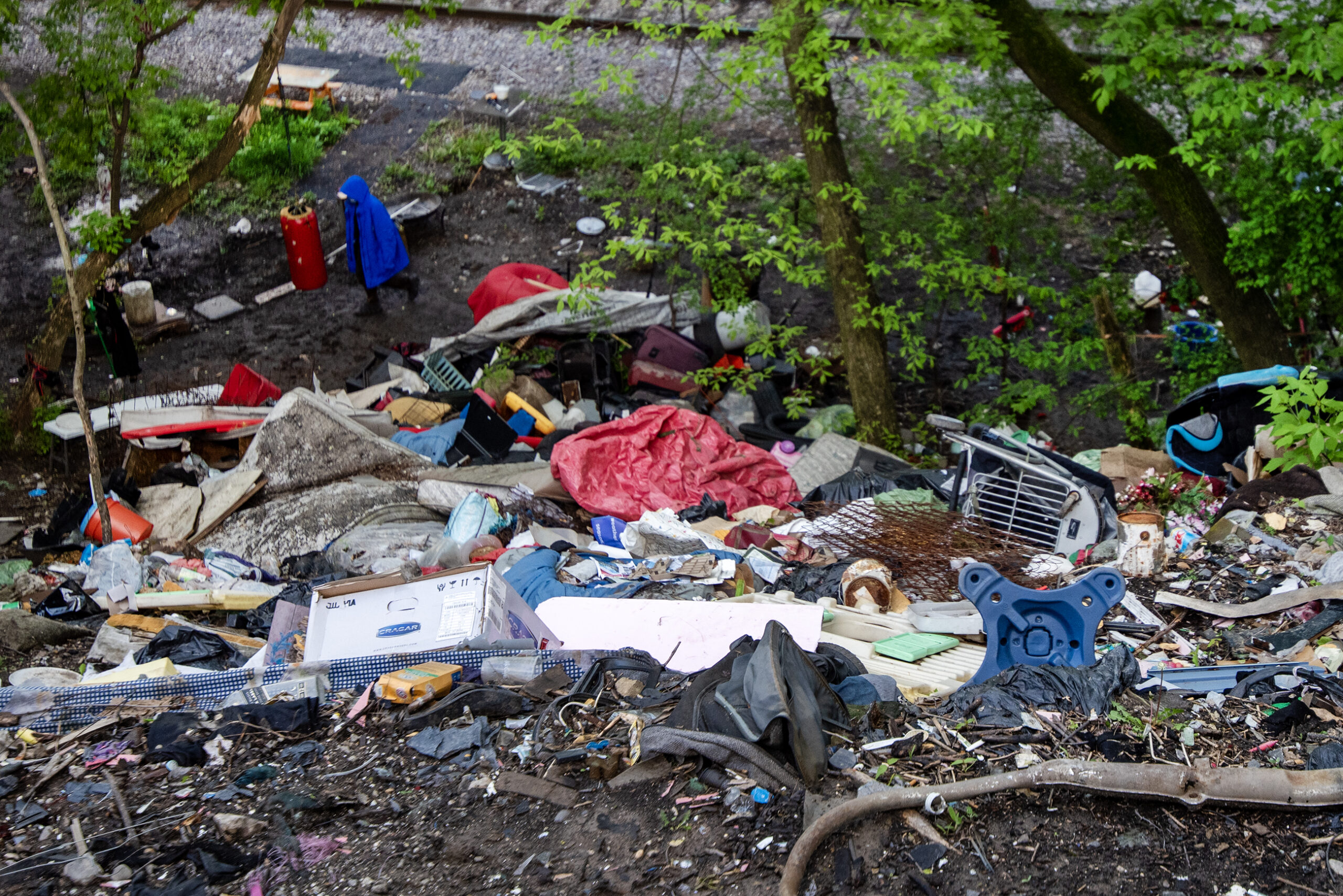A divided city committee shot down a proposal Monday to ban encampments on public land in marsh near the Mississippi River, as La Crosse continues to struggle to address increased homelessness in the community.
The city saw a significant increase in homelessness during the COVID-19 pandemic. After several years of emergency shelters, the city and the county released a long-term plan earlier this year to reach “functional zero” homelessness by 2029.
But some residents and business owners in the community area have pushed for more immediate action.
News with a little more humanity
WPR’s “Wisconsin Today” newsletter keeps you connected to the state you love without feeling overwhelmed. No paywall. No agenda. No corporate filter.
On Monday, the city’s Board of Public Works considered a proposal to ban camping on several city-owned properties within La Crosse’s river marsh. The area has a system of recreational trails maintained by the city, but also contains land owned by the state and La Crosse County.
Residents and businesses along the marsh say encampments in the area have generated large amounts of trash and prompted public safety concerns around drug use and potential violence. Many of them spoke during public comment at the board’s meeting on Monday.
“There is no clean source of water, no toilets and a risk of flooding all the time,” said Diane Silva, one of the La Crosse residents who provided public comment. “There is illegal activity going on in the marsh that is threatening to those using the marsh trails, but also to those people that are peacefully trying to live there.”
Advocates for the homeless community spoke in opposition to the ban, pointing out that the city has not provided unsheltered people with an alternative place to go.
In March, La Crosse officials cleared out a similar encampment on public lands along the Mississippi River, which advocates say prompted many people to move into the marsh.
Julie McDermid, executive director of supportive housing program Karuna, Inc., said the marsh is not an ideal location for people who are unsheltered. But she said the population is running out of alternative spaces. Last year, the city council amended a city ordinance to ban camping in public parks and parking ramps.
“I don’t know where they would go if they didn’t have the marsh right now,” she said. “It’s been banned in so many other places, and we’re just driving them further and further away from services that can offer help and keep them alive.”
City officials voice commitment to long-term plan, differing views on short term action
Members of the board were also split on whether another camping ban would address the issue.
Mayor Mitch Reynolds voted in favor of the ban. He said he believed the board was not looking to vote against people camping in the city, but said officials need to consider where that camping occurs.
“The area where people have settled is completely untenable in relation to garbage removal, police response and EMS response,” Reynolds said during the meeting. “It is also just a monstrous health disaster all the way around.”
The board voted 3-2 to deny the camping ban. City council member Tamra Dickinson, who opposed the measure, said continuing to displace unsheltered people will make it more difficult for the organizations working to place people in permanent housing.
“There’s not a steady communication for them on where they’re going to move and how they’re going to be located, so we would not be able to provide any services for them,” she said. “That is a concern. We just keep kind of saying where they can’t be. But we’re not saying anything about where can they be.”
Dickinson said city officials need to stay committed to the long-term plan to address homelessness and avoid creating more uncertainty for unsheltered people through future displacements.
Wisconsin Public Radio, © Copyright 2026, Board of Regents of the University of Wisconsin System and Wisconsin Educational Communications Board.
